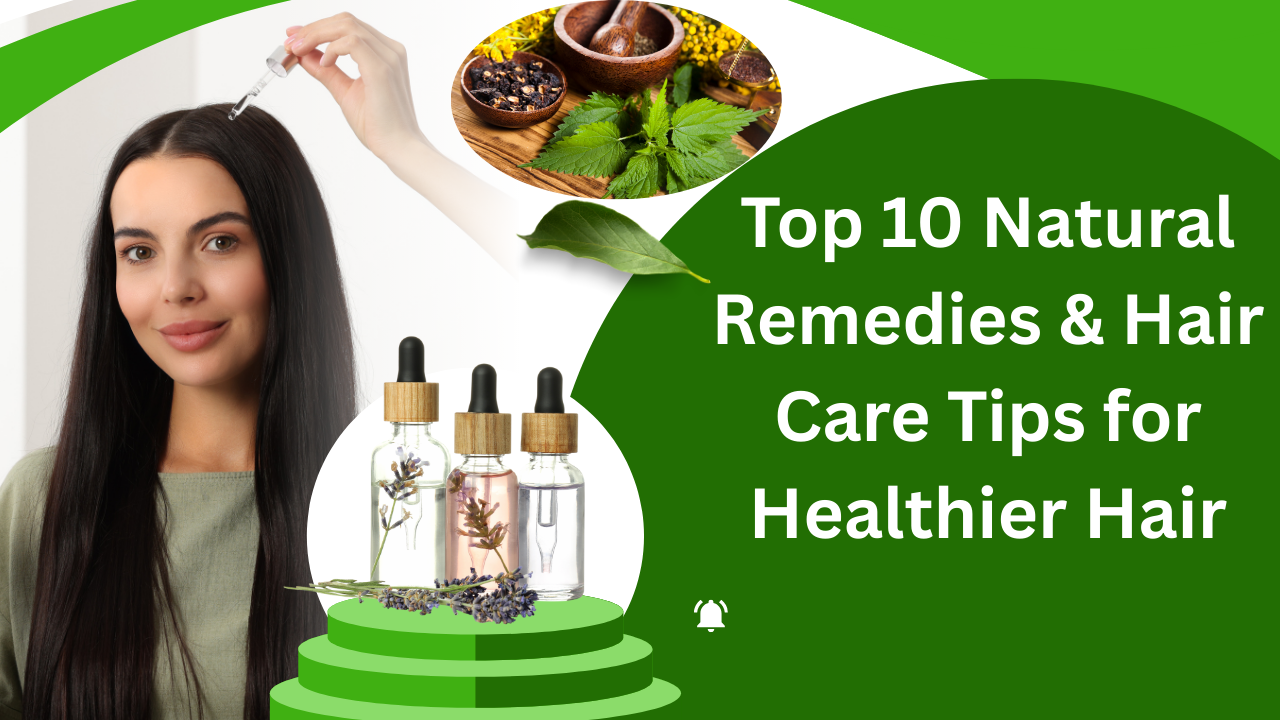Hair is more than just a physical attribute—it’s a reflection of our identity, health, and confidence. Across cultures and generations, hair has symbolized beauty, strength, and personal expression. Whether worn long or short, natural or styled, our hair often plays a central role in how we present ourselves to the world. It affects first impressions, boosts self-esteem, and even influences our mood. Healthy, well-maintained hair can elevate not just appearance, but also how we feel internally.
In many societies, a full head of healthy hair is also associated with youth, vitality, and attractiveness. It’s no surprise that people invest significant time, money, and energy into keeping their hair in good condition. However, while external appearance is important, hair also serves physiological functions. It protects the scalp from environmental damage like UV rays and cold weather, and it plays a minor role in regulating body temperature.
Understanding Hair Health
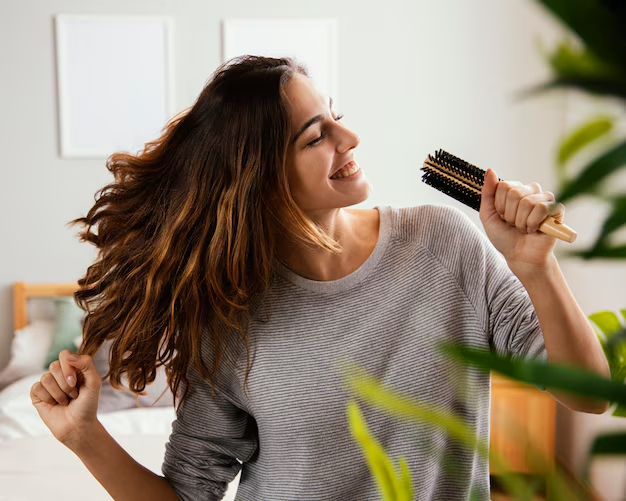
Hair health is more than just shine and length; it reflects your overall well-being. Like your skin, your hair can show signs of internal health issues. Dull, dry, thinning, or excessive hair loss may indicate nutrient deficiencies, hormonal imbalances, stress, or even underlying medical conditions. Paying attention to changes in your hair can help identify potential health concerns and guide you toward better self-care.
To maintain optimal hair health, it’s important to understand what contributes to strong, beautiful strands:
Scalp Health: A healthy scalp is essential for strong, vibrant hair. Conditions like dandruff, dryness, or fungal infections can interfere with hair growth, causing irritation and even leading to hair loss. It’s important to keep the scalp clean and free of buildup to promote optimal hair growth and maintain a balanced environment for healthy follicles.
Nutrition: Hair is mainly made up of keratin, a protein that requires proper nutrition to remain strong and healthy. Without sufficient protein, along with essential vitamins and minerals like iron, zinc, and biotin, hair can become weak, brittle, and prone to breakage. A well-balanced diet is key to supporting the hair’s structure and growth.
Hydration: Just as skin needs moisture to stay healthy, so does hair. Hydrated hair is more elastic and resilient, able to withstand daily wear and tear. When hair becomes dehydrated, it loses its shine and is more susceptible to damage, including breakage and split ends. Keeping hair properly moisturized is essential for maintaining its strength and appearance.
Hormonal Balance: Hormones significantly affect the hair growth cycle. Imbalances in hormones can lead to conditions such as alopecia (hair thinning or baldness) or excessive shedding. Factors like pregnancy, menopause, or thyroid issues can disrupt hormonal levels, affecting hair health. Addressing hormonal imbalances can help maintain healthy hair growth.
Stress and Lifestyle: Chronic stress can have a major impact on hair health. It is closely linked to hair loss and thinning, especially when stress is prolonged. Lifestyle habits like poor sleep, smoking, and lack of exercise can also negatively affect hair health. Managing stress and adopting healthier habits can help improve both overall well-being and hair vitality.
Hair Care Routine: The way you care for your hair can greatly affect its health. Using harsh shampoos or over-styling with heat tools can strip your hair of natural oils, leaving it dry and damaged. Skipping key steps in your hair care routine, such as conditioning, can also contribute to weak and brittle hair. It’s important to establish a gentle, nourishing routine that preserves your hair’s natural strength and shine.
The Role of Natural Remedies in Hair Care
In a world dominated by synthetic hair products promising quick fixes, natural remedies offer a healthier, long-lasting alternative. These remedies work by nourishing hair from the root, strengthening the shaft, and enhancing natural shine, all while avoiding the harmful chemicals found in many commercial products. They provide a gentler approach that nurtures your hair’s overall health.
By including natural ingredients into your daily routine and following simple hair care tips, you create a balanced strategy that supports both the appearance and health of your hair. Over time, this approach leads to more vibrant, resilient hair that radiates natural beauty. This comprehensive guide explores the top 10 natural remedies for healthier hair, offering essential hair care tips that can transform your routine and your locks.
Coconut Oil – The Ultimate Natural Conditioner
Coconut oil has earned a reputation as a miracle ingredient in hair care due to its many benefits. Rich in fatty acids, it provides deep nourishment for the hair, working to improve its strength and shine. This natural oil has the ability to penetrate the hair shaft, unlike many other oils that sit on the surface, offering a more effective treatment for hair health.
One of the key benefits of coconut oil is its ability to prevent protein loss. Hair is made up of keratin, a protein, and coconut oil helps to maintain its integrity, reducing the risk of damage and breakage. This is especially helpful for those with dry, brittle hair that is prone to split ends.
Regular use of coconut oil can lead to smoother, shinier, and more manageable hair. It helps lock in moisture, keeping your hair hydrated, and prevents damage caused by environmental factors or heat styling.
How to Use:
Warm 2 tablespoons of virgin coconut oil.
Apply from roots to ends.
Massage into the scalp for 5-10 minutes.
Leave it on for at least an hour or overnight.
Wash with a mild shampoo.
Hair Care Tips:
Use coconut oil twice a week to maintain moisture.
Ideal for dry, damaged, or chemically treated hair.
Avoid excessive use on oily scalps.
Aloe Vera – Nature’s Scalp Soother
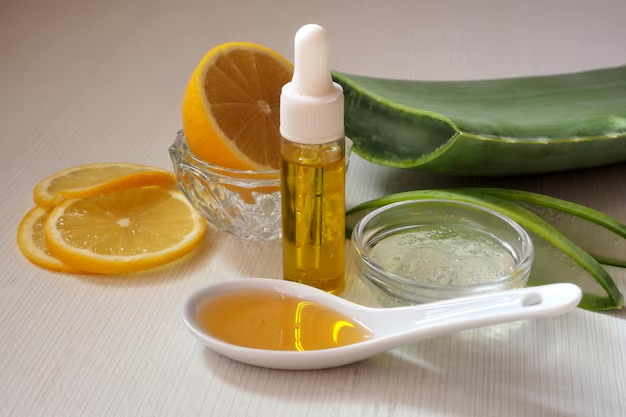
Aloe vera is a highly beneficial ingredient for scalp health, thanks to its proteolytic enzymes. These enzymes help repair dead skin cells on the scalp, promoting a healthier environment for hair growth. By removing buildup and encouraging cell regeneration, aloe vera helps improve overall scalp condition.
In addition to its enzymatic action, aloe vera is a powerful natural moisturizer. It hydrates the scalp and hair, preventing dryness and flakiness, which can lead to dandruff. Regular use of aloe vera can help balance moisture levels, keeping the scalp healthy and nourished.
Aloe vera also supports hair growth by stimulating blood circulation to the scalp. This, in turn, encourages stronger and thicker hair. By reducing dandruff and keeping the scalp moisturized, aloe vera can significantly improve hair health and appearance.
How to Use:
Scoop out fresh aloe vera gel.
Apply directly to the scalp and along the hair.
Leave for 30–45 minutes.
Rinse with lukewarm water.
Hair Care Tips:
Mix aloe vera with castor oil for a potent hair mask.
Use it once a week for best results.
Store unused gel in the fridge for up to one week.
Onion Juice – Stimulates Hair Growth
Onion juice, though its smell may be strong, is a powerful natural remedy for hair growth. Rich in sulfur, it helps boost collagen production, a key factor in healthy hair growth. Collagen supports the strength and elasticity of hair follicles, promoting thicker, stronger hair. Incorporating onion juice into your routine can be a beneficial addition to your hair care tips.
In addition to stimulating hair growth, onion juice helps nourish the scalp and reduce hair thinning. Regular use can improve circulation to the scalp, creating a healthier environment for hair follicles. While the scent might be unpleasant, the benefits of onion juice for hair care are undeniable, offering a natural solution for thicker, fuller hair.
How to Use:
Blend one onion and strain the juice.
Apply to the scalp using a cotton pad.
Leave it for 15–30 minutes.
Wash with a fragrant shampoo.
Hair Care Tips:
Use once a week to stimulate growth.
Combine with a few drops of lavender essential oil to mask the smell.
Patch test to avoid allergic reactions.
Egg Mask – Protein-Rich Strengthener
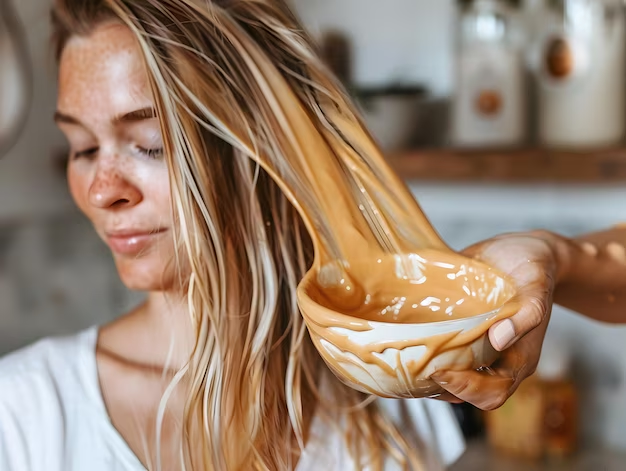
Eggs are packed with protein and biotin, two essential nutrients that play a key role in maintaining healthy hair. Protein helps strengthen hair strands, while biotin promotes hair growth and reduces brittleness. Including eggs in your hair care routine is a simple and effective way to boost hair health.
An egg mask is a great addition to your hair care tips, especially for those with dry or brittle hair. When applied regularly, an egg mask can restore shine and strength to your strands. The nourishing properties of eggs help improve hair texture, making it softer and more resilient. Using this natural remedy is an easy way to enhance your hair’s overall health and appearance.
How to Use:
Whisk 1 egg with 1 tablespoon of olive oil.
Apply the mixture to damp hair.
Cover with a shower cap.
Leave for 20–30 minutes, then rinse with cold water.
Hair Care Tips:
Avoid using hot water to rinse off the egg to prevent “cooking” it.
Use once every two weeks.
Great for strengthening and thickening hair.
Apple Cider Vinegar – Scalp Balancer
Apple cider vinegar (ACV) is a valuable addition to your hair care routine, thanks to its ability to balance scalp pH. Maintaining the right pH level is crucial for a healthy scalp, as it helps prevent issues like dryness or excess oil. ACV helps restore this balance, promoting a more comfortable and healthy scalp environment.
In addition to balancing pH, ACV acts as a clarifying agent that removes product buildup. Over time, hair care products can leave residue on the scalp and hair, weighing it down. Regular use of ACV as part of your hair care tips can help eliminate this buildup, leaving your hair feeling lighter, fresher, and more manageable. It’s a simple, natural solution for cleaner, healthier hair.
How to Use:
Mix 2 tablespoons of ACV with 1 cup of water.
Pour over hair after shampooing.
Leave for a few minutes, then rinse thoroughly.
Hair Care Tips:
Use once every 2 weeks.
ACV can enhance natural shine and reduce dandruff.
Avoid contact with eyes.
Fenugreek Seeds – Hair Fall Control
Fenugreek seeds are an excellent natural remedy for hair health, as they are rich in nicotinic acid and proteins. These nutrients play a vital role in strengthening hair shafts and reducing hair breakage. By nourishing the hair from the root to the tip, fenugreek helps enhance the overall health and appearance of your strands.
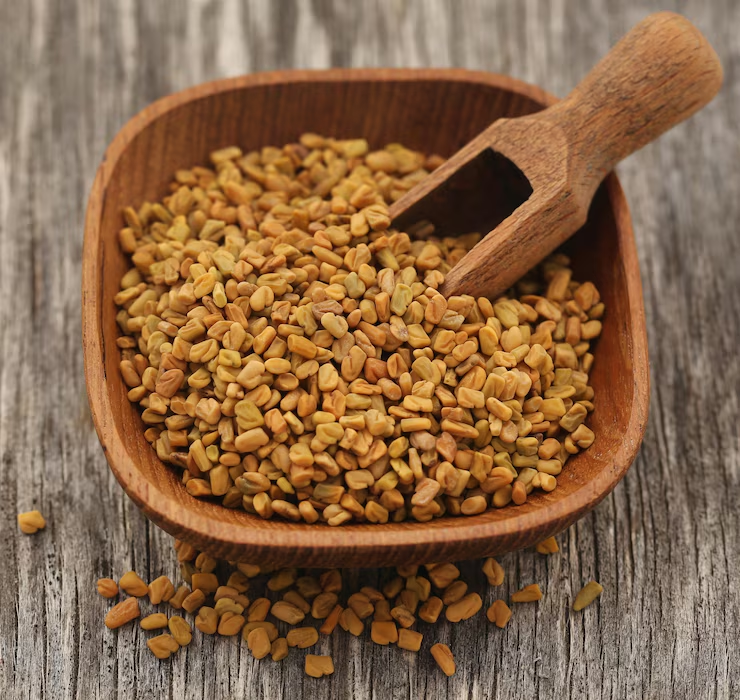
Incorporating fenugreek seeds into your hair care routine is a great addition to your hair care tips. When used in masks or oil treatments, they promote hair growth and help maintain strong, resilient hair. Regular use of fenugreek can also improve scalp health, reduce dandruff, and make hair shinier and more manageable. It’s an easy and natural way to support your hair’s strength and growth.
How to Use:
Soak 2 tablespoons of seeds overnight.
Grind into a paste and apply to scalp.
Leave for 30–45 minutes, then wash with a mild shampoo.
Hair Care Tips:
Use twice a month to reduce hair fall.
You can also mix fenugreek powder with yogurt for added benefits.
Ideal for thinning hair.
Green Tea – Antioxidant Powerhouse
Green tea is packed with catechins, powerful antioxidants that can help reduce hair loss. These catechins work by blocking DHT (Dihydrotestosterone), a hormone linked to hair thinning and male pattern baldness. By inhibiting DHT production, green tea helps promote healthier hair growth and reduces the risk of hair thinning.
Incorporating green tea into your hair care tips is an easy way to support hair health. Whether used as a rinse or consumed as a beverage, the benefits of green tea can be felt both internally and externally. Regular use can strengthen hair, improve scalp health, and even prevent premature hair loss. Adding green tea to your routine offers a natural, effective way to maintain thicker, healthier hair.
How to Use:
Brew 2 green tea bags in 1 cup of water.
Let it cool and pour over your hair after shampooing.
Leave for 10 minutes, then rinse.
Hair Care Tips:
Use twice a week to see visible improvements.
Green tea rinse can also help reduce scalp irritation.
Great for oily scalps.
Castor Oil – Growth and Thickness Booster
Castor oil is thick and rich in ricinoleic acid, making it a popular choice for promoting hair growth. This natural oil helps stimulate hair follicles, encouraging faster growth and improving overall hair thickness. Its nourishing properties make it a great option for anyone looking to enhance their hair’s volume and strength.
Incorporating castor oil into your hair care tips can lead to fuller, healthier hair. When massaged into the scalp, it improves circulation, helping to nourish hair roots and prevent hair loss. Regular use of castor oil also adds moisture to the hair, reducing dryness and promoting a smoother texture. It’s a simple yet effective way to boost your hair’s growth and volume naturally.
How to Use:
Mix castor oil with coconut or olive oil (1:1 ratio).
Warm slightly and apply to scalp and hair.
Leave overnight or at least 2 hours before washing.
Hair Care Tips:
Use once a week for best results.
Due to its thick consistency, always mix it with a lighter oil.
Wash thoroughly to avoid greasy residue.
Hibiscus Flower – The Hair Elixir
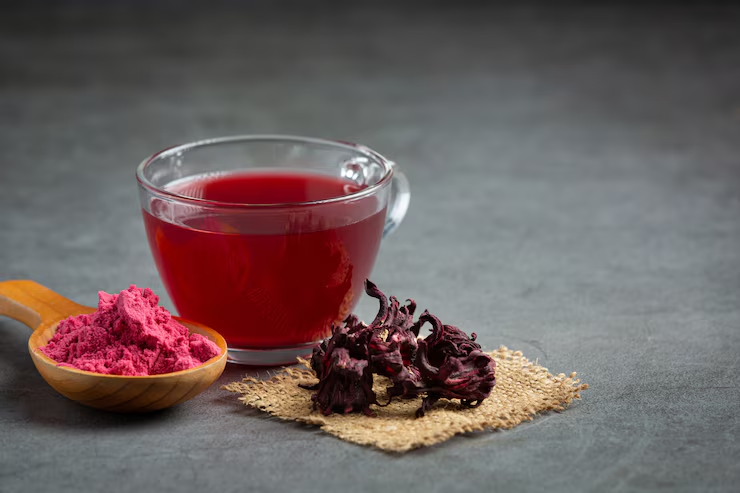
Hibiscus is a powerful natural remedy commonly used in Ayurvedic treatments for hair loss and dandruff. Rich in vitamins and antioxidants, it nourishes the scalp and strengthens hair follicles, helping to reduce hair shedding. Its soothing properties also help calm irritation, promoting a healthier scalp environment.
Incorporating hibiscus into your hair care tips can encourage hair growth while adding natural shine. Regular use of hibiscus oil or hair masks can improve hair texture, making it smoother and more manageable. By addressing both scalp health and hair strength, hibiscus serves as an effective, natural solution for vibrant, fuller hair.
How to Use:
Crush fresh hibiscus petals and mix with coconut oil.
Apply to scalp and hair.
Leave for 30–60 minutes, then rinse.
Hair Care Tips:
Use once a week to revitalize dull hair.
Combine with fenugreek paste for enhanced effects.
Can also be used as a natural hair dye.
Avocado – Deep Nourishment
Avocado is packed with essential vitamins E, D, and B6, making it a highly effective natural remedy for hair health. These nutrients work together to deeply nourish the scalp, repairing damage and restoring moisture. Avocado helps strengthen hair strands from the root, preventing breakage and promoting healthier growth.
Incorporating avocado into your hair care tips is a great way to improve the texture and shine of your hair. Whether used as an avocado oil treatment or a DIY mask, it provides intense hydration, leaving your hair feeling soft, smooth, and more manageable. Regular use of avocado helps maintain strong, shiny hair, making it a must-have for any hair care routine.
How to Use:
Mash one ripe avocado with 2 tablespoons of honey and olive oil.
Apply generously to damp hair.
Leave for 30 minutes and rinse well.
Hair Care Tips:
Ideal for dry and frizzy hair.
Use as a weekly deep-conditioning treatment.
Pair with essential oils for added aroma and benefits.
General Hair Care Tips for Long-Term Results
Incorporating natural remedies is only part of the journey. Here are some consistent hair care tips to boost the effects of these treatments:
Avoid Heat Styling: Minimize the use of heat styling tools like straighteners, curlers, and blow dryers, as they can cause damage to hair over time. Heat strips hair of its natural moisture, leading to dryness, split ends, and breakage. If you must use heat, always apply a heat protectant spray to safeguard your hair.
Choose the Right Comb: When detangling wet hair, opt for a wide-tooth comb rather than a brush. Wet hair is more fragile and prone to breakage, so a wide-tooth comb helps gently separate knots without causing unnecessary damage or stress on the strands.
Regular Trims: Trim your hair every 6–8 weeks to keep it looking healthy and prevent split ends from traveling up the hair shaft. Regular trims help maintain hair shape and promote growth by eliminating damaged ends, allowing your hair to grow stronger and healthier.
Hydrate: Drinking at least 8 glasses of water a day keeps your hair hydrated from the inside out. Proper hydration supports healthy scalp conditions and helps prevent dryness, making your hair shinier and more resilient.
Balanced Diet: A balanced diet rich in protein, vitamins, and minerals plays a vital role in maintaining healthy hair. Foods like eggs, nuts, and leafy greens promote hair strength, while vitamins such as biotin and vitamin E support hair growth and shine.
Scalp Care: Taking care of your scalp is crucial for overall hair health. Regularly cleansing and nourishing your scalp ensures that hair follicles remain unclogged, reducing hair loss and promoting healthy hair growth. Scalp massages with natural oils can also stimulate circulation, enhancing hair vitality.
Protective Hairstyles: To prevent breakage and minimize friction, opt for protective hairstyles like braids or buns. These styles reduce the strain on your hair while offering a stylish way to keep your hair secure and protected from environmental damage. Just be sure not to make them too tight, as that can cause tension and hair breakage.
Keep these hair care tips in mind and customize them based on your hair type and concerns. Consistency is the key to seeing long-term benefits.
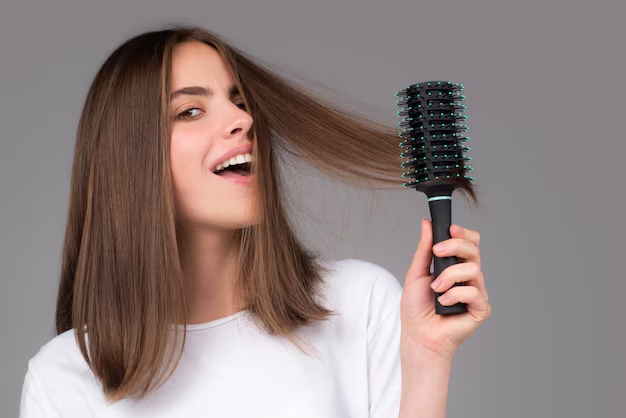
Conclusion
Healthy hair doesn’t need to be expensive or complicated. By using these top 10 natural remedies, you can care for your hair in a gentle and effective way. These ingredients work to bring back your hair’s natural shine, strength, and smoothness. When combined with smart hair care tips, they offer a complete routine that supports healthy hair over time.
Whether it’s the deep moisture from avocado, the protein boost from eggs, or the calming effect of aloe vera on the scalp, there’s a natural remedy for every hair need. Add these simple treatments to your weekly care, follow helpful hair care tips regularly, and enjoy softer, stronger, and healthier hair without relying on harsh chemicals.
FAQs
- What are the most effective natural remedies for hair growth ?
Castor oil and onion juice are two of the best natural remedies for boosting hair growth. They help improve scalp circulation and strengthen hair roots when used regularly. - How often should I apply natural treatments to my hair ?
Most natural remedies should be used once or twice a week. Overusing them can lead to buildup, so it’s best to follow a balanced routine along with good hair care tips. - Can I use natural remedies on chemically treated or colored hair ?
Yes, many natural ingredients like aloe vera, coconut oil, and avocado are safe for chemically treated or colored hair. They help restore moisture and repair damage naturally. - How long does it take to see results from natural remedies ?
It usually takes 4 to 6 weeks of consistent use to notice visible improvements. Patience and following regular hair care tips are key to getting long-term results. - Are there any risks or side effects of using natural remedies ?
Natural remedies are generally safe, but some people may have allergic reactions. Always do a patch test before trying any new ingredient to avoid irritation or discomfort.

